
Vertinum 16mg Tablet
Manufacturer
Vindcare Lifesciences
Salt Composition
Betahistine (16mg)
Key Information
Short Description
Vertinum 16mg Tablet is used to prevent and treat a disorder of the inner ear known as Ménière's disease, which includes symptoms such as dizziness, ringing in the ears, and loss of hearing.
Dosage Form
Tablet
Introduction
Vertinum 16mg Tablet should be swallowed whole with water and taken at the same time(s) each day to get the most benefit. Your doctor will decide what is the correct dose to relieve your symptoms and how often you need to take it. You may need to take this medicine for several months and you should take it for as long as prescribed by your doctor even if you start feeling better. The most common side effects include headache, feeling sick, and indigestion (dyspepsia). You may also get stomach pain and bloating. Taking the medicine with food can help reduce stomach problems.
Directions for Use
Take this medicine in the dose and duration as advised by your doctor. Swallow it as a whole. Do not chew, crush, or break it. Vertinum 16mg Tablet may be taken with or without food but it is better to take it at a fixed time.
How it works
Vertinum 16mg Tablet is a histamine analog. It works by improving the blood flow in the inner ear which reduces the pressure of excess fluid there. Excess fluid can send signals to the brain causing nausea, dizziness or spinning sensations (symptoms of Ménière's disease). Vertinum 16mg Tablet additionally dampens down the nerve signals sent from the inner ear to the brain relieving the symptoms of Ménière's disease.
Quick Tips
You have been prescribed Vertinum 16mg Tablet to relieve vertigo (dizziness), hearing problems, and tinnitus (noise in the ear) associated with Ménière's disease. It can only decrease the number and severity of attacks but may not completely stop them. Taking it with food can help reduce stomach problems. Take it at the same time each day to maintain a steady amount of the medicine in your body. Inform your doctor if you have a history of stomach ulcer, asthma, or low blood pressure.
Related Medicines
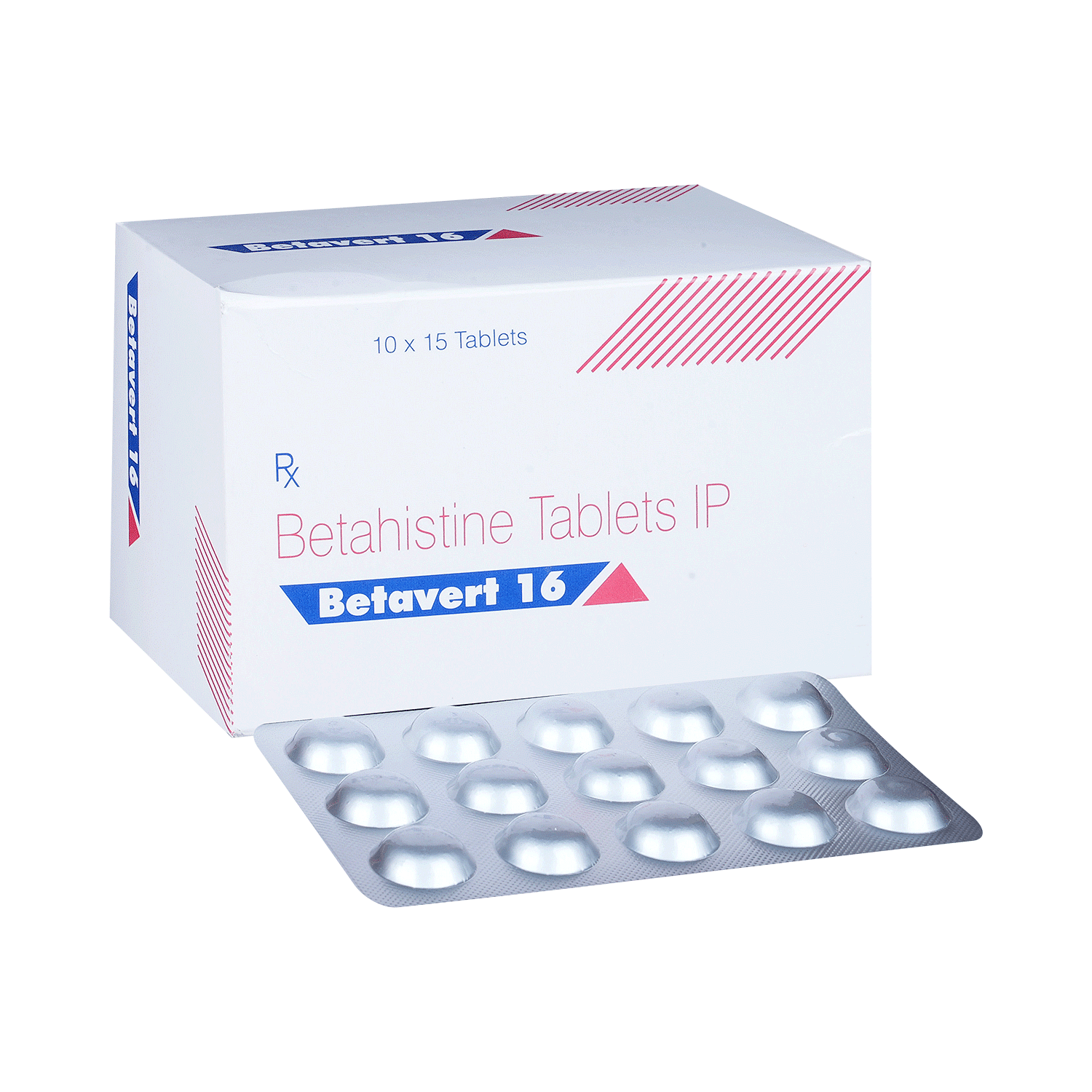
Betavert 16 Tablet
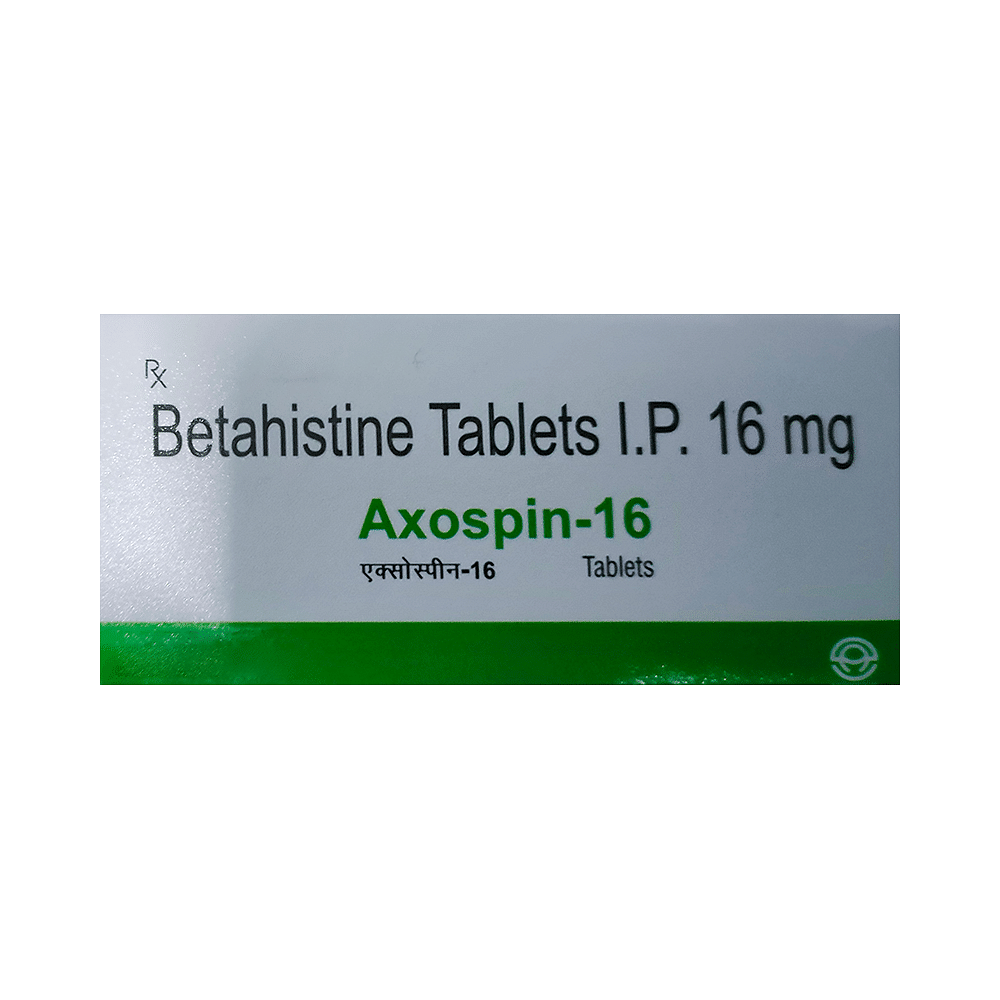
Axospin 16 Tablet
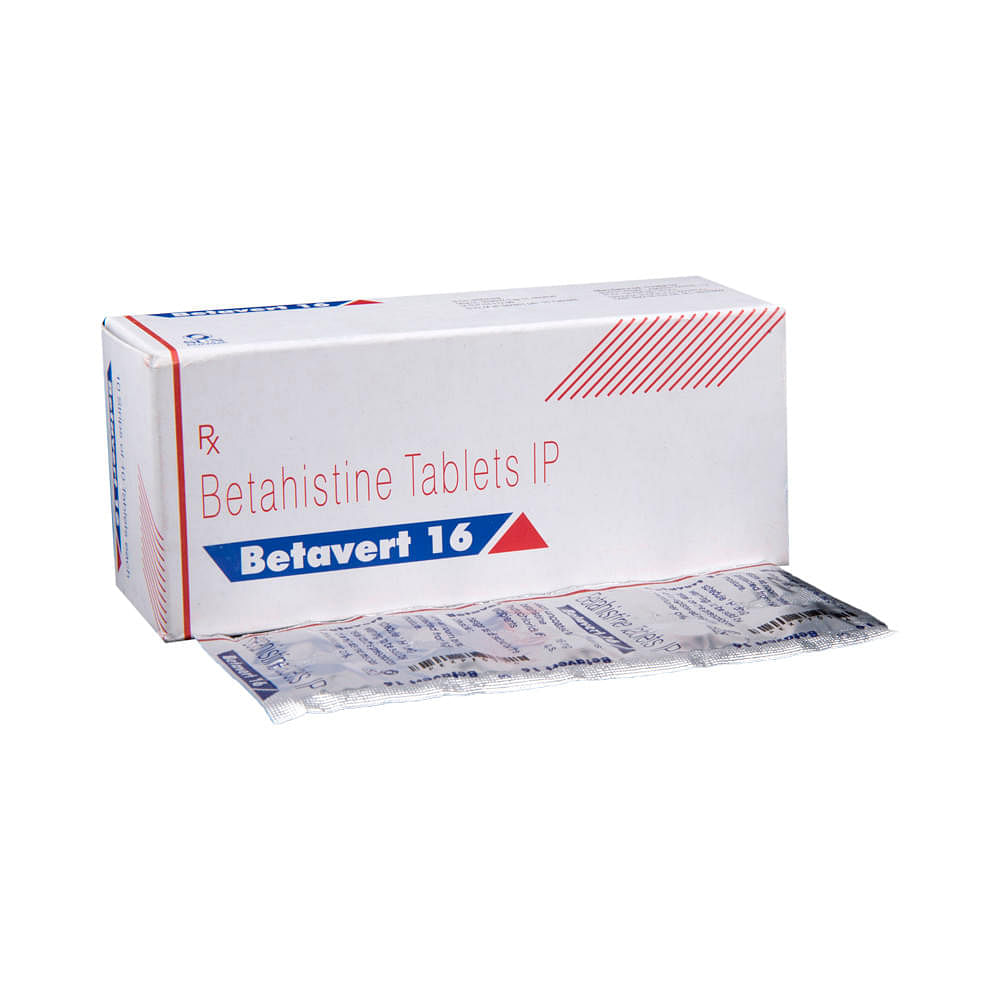
Betavert 16 Tablet
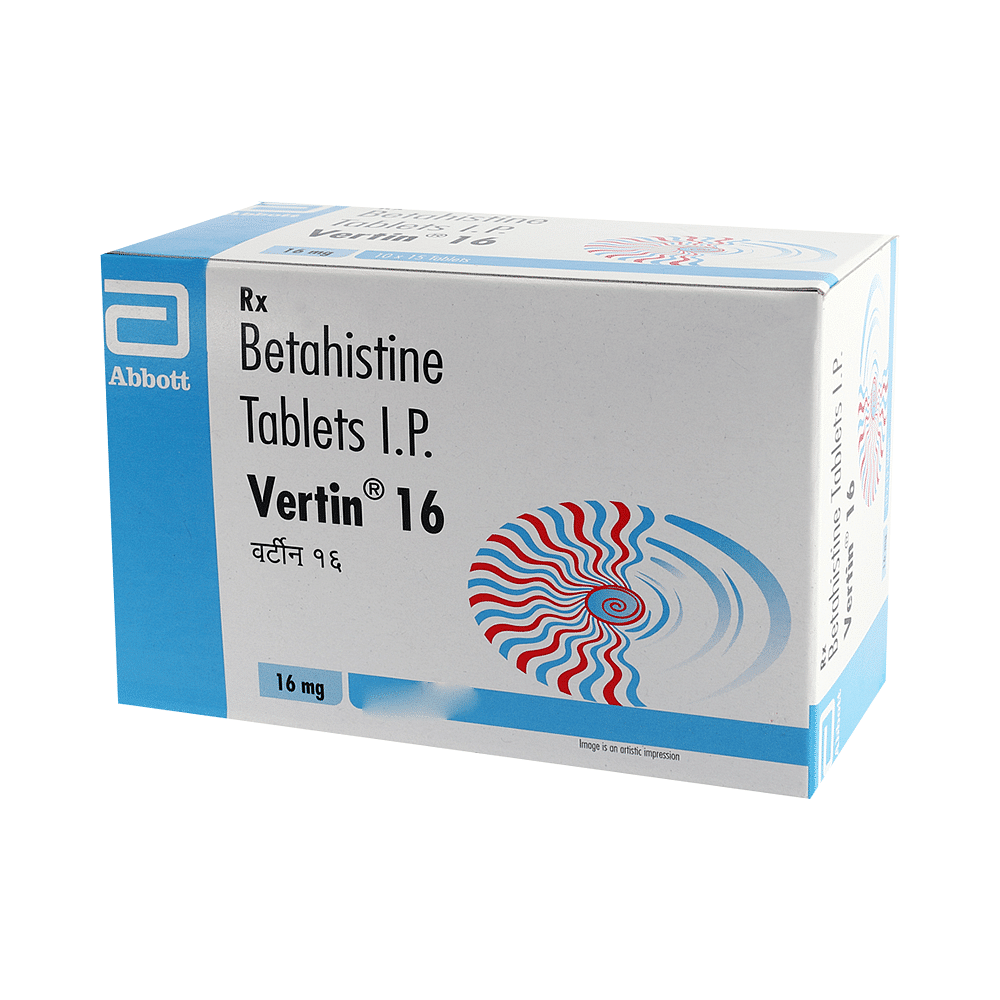
Vertin 16 Tablet

Genvert 16 Tablet

Vhest 16mg Tablet

Diverge 16 Tablet

Vertirex 16mg Tablet

Gidinil 16mg Tablet
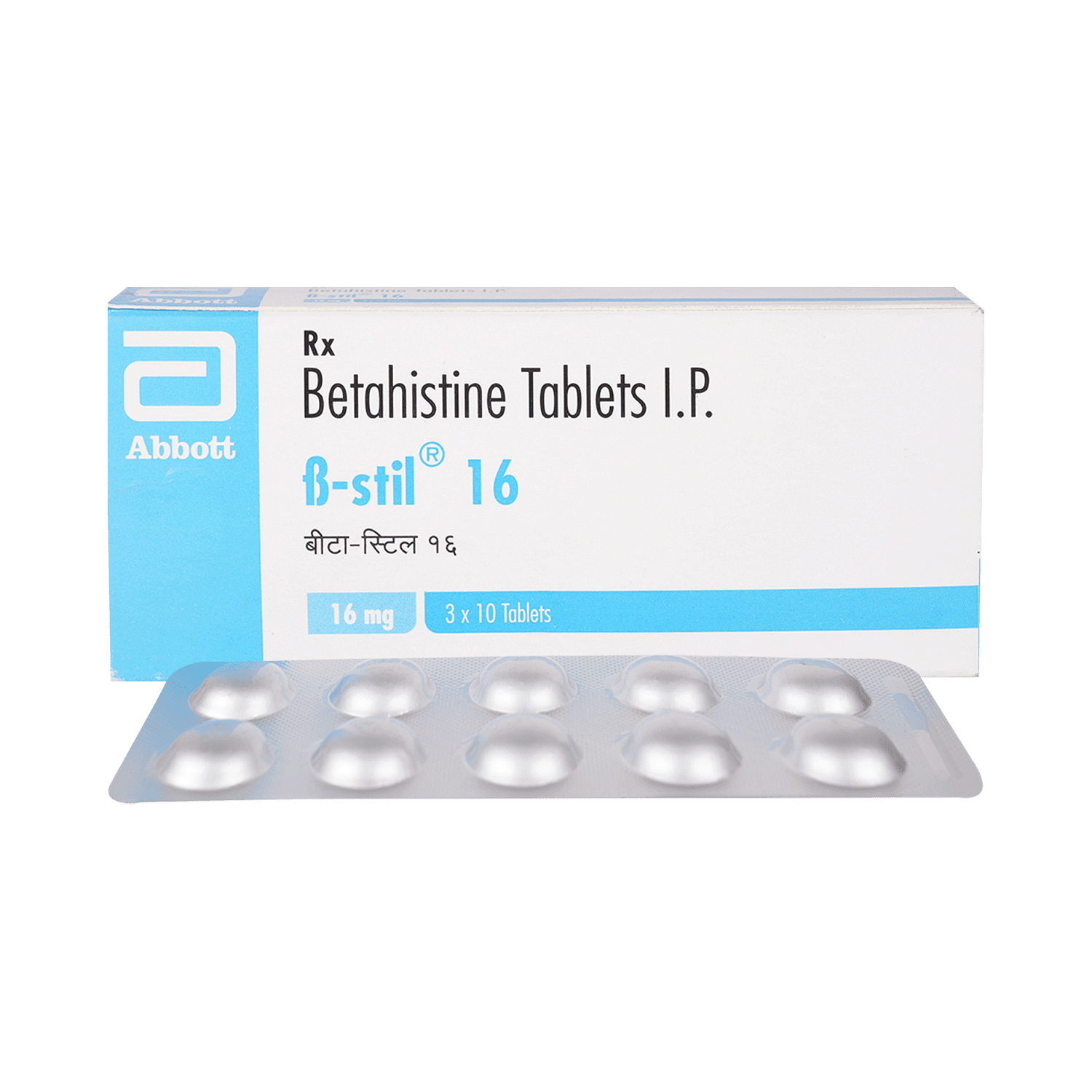
B-Stil 16 Tablet
Frequently asked questions
What is Meniere's disease? Does it go away?
Meniere's disease is a disorder of the inner ear that affects balance and hearing. The symptoms include vertigo (feeling like you might fall), fluctuating hearing loss, tinnitus (ringing in the ears), and pressure in the affected ear. Dizziness can also occur, which may cause nausea and vomiting. While there isn't a guaranteed cure for Meniere's disease, treatment aims to manage symptoms and improve quality of life. Treatment is individualized based on your specific condition and response.
Is Vertinum 16mg Tablet effective?
Vertinum 16mg Tablet can be effective when taken as prescribed by your doctor. It's crucial not to stop taking it prematurely, even if you start feeling better. If stopped early, symptoms might return or worsen. Always follow the instructions provided by your doctor regarding dosage and duration.
What are the triggers for Meniere's disease?
Triggers for Meniere's disease can include various factors like: stress, overwork, fatigue, emotional distress, additional illnesses, changes in pressure. Additionally, certain foods might trigger symptoms such as dairy products, caffeine, alcohol, and high sodium content. A low-salt diet (2 grams/day) may help control vertigo related to Meniere's disease.
What if I forget to take a dose of Vertinum 16mg Tablet?
If you miss a dose, take it as soon as you remember. If it is almost time for your next dose, skip the missed one and take your next dose at the scheduled time. Do not double the dose to make up for the missed one as this may increase the risk of side effects.
Is stress a reason for vertigo?
Stress can contribute to the development or worsening of vertigo. It's important to note that while stress itself doesn't cause vertigo, it can exacerbate existing cases.
What are the causes of vertigo?
Vertigo can arise from various causes, including: sudden drops in blood pressure. Dehydration can also lead to lightheadedness when transitioning between sitting and lying down positions. Motion sickness, certain medications, or issues with your inner ear (Meniere's disease, acoustic neuroma) are also common triggers for vertigo. It's important to note that sometimes vertigo might be a symptom of other disorders such as multiple sclerosis or following head trauma.
How long should Vertinum 16mg Tablet be taken?
Duration of treatment with Vertinum 16mg Tablet varies from patient to patient. Some individuals experience rapid improvement, while others may require a longer treatment period for noticeable results. Consulting your doctor is essential if you have any uncertainties regarding the duration of treatment.
What are the common side effects of Vertinum 16mg Tablet?
Common side effects associated with Vertinum 16mg Tablet may include mild stomach discomfort such as vomiting, stomach pain, bloating, or abdominal swelling. These side effects can be reduced by taking the medication with meals. However, it's essential to understand that food intake can impact the absorption of this medication.
Is Vertinum 16mg Tablet effective?
Vertinum 16mg Tablet is designed to be taken as prescribed by your doctor. It is crucial not to stop taking it prematurely, even if you experience some improvement. If stopped too early, symptoms may return or worsen. Always follow your doctor's instructions for dosage and duration.
What if I forget to take a dose of Vertinum 16mg Tablet?
If you miss a dose, take it as soon as you remember. However, if it is almost time for your next dose, skip the missed one and take the next dose at the scheduled time. Do not double the dose to make up for the missed one, as this may increase the risk of side effects.
How long should Vertinum 16mg Tablet be taken?
The duration of treatment with Vertinum 16mg Tablet will vary from person to person. Some individuals experience fast improvement while others may need a longer period for noticeable changes in their symptoms. Consult your doctor if you have any questions or uncertainties regarding the duration of treatment.


